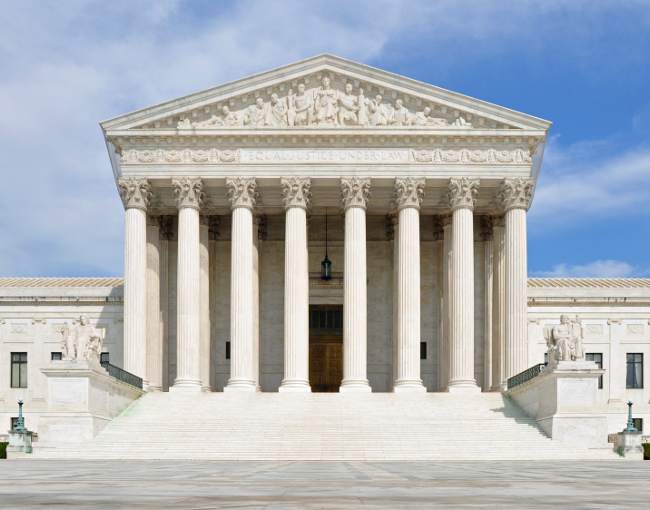Do copyright owners need an issued copyright registration or only a pending application to enforce their copyright in federal court? The U.S. Supreme Court has agreed to decide this question.
The Copyright Act provides that “no civil action for infringement of the copyright in any United States work shall be instituted until … registration of the copyright claim has been made ....” The circuit courts of appeal that have considered this question reached different conclusions – all turning on the interpretation of the phrase “registration has been made.”
Seven appellate courts have considered the question, and the results are split. Two appellate courts determined the phrase means an issued copyright registration, but two other appellate courts found that a registration has been made when the copyright owner submits their application. Two courts acknowledged the different approaches, but elected not to decide the question. And one appellate court, the Seventh Circuit Court of Appeals, issued two opinions – with one opinion supporting each view.

This map indicates which circuits and states have required a finalized copyright registration or a pending application to enforce a copyright, and which states have recognized both types of preconditions.
Before accepting the appeal in Fourth Estate Public Benefit Corp. v. Wall-Street.com, the U.S. Supreme Court asked the U.S. government for its view. The government asserted the owner must have an issued registration from the Copyright Office in order to proceed with an infringement action.
While the question is simple, the answer is important for rights holders. If the Supreme Court decides a copyright owner needs an issued registration, that may result in a delay of up to 10 months while the Copyright Office reviews the owner’s application for registration. During this time period, the copyright owner will be unable to move forward with a lawsuit. Copyright owners who want to proceed as soon as possible can elect to pay an additional $800 fee to the Copyright Office for expedited processing of their application, but when a large number of works are involved, which is often the case with photographers, the per work fee can become significant.
The Supreme Court’s decision in Fourth Estate Public Benefit Corp., expected next term, will provide consistency in copyright infringement actions moving forward.
Mike Nepple is a partner in Thompson Coburn’s Intellectual Property group.







